Sabrina Sobhy says she has finally “accepted that I’m allowed to love squash” as she opened up on her at times complex relationship with the sport, and her strong season.
Talking to Squash IQ, Sobhy also revealed what she really thinks of her nickname, ‘The Roadrunner’, how she is determined to continue improving the tactical side of her game, and which of her peers inspire her the most.
‘I realised this is something I’m passionate about’
The lightning-fast 26-year old is enjoying the best season of her career, making her first Platinum quarter-final in September. She broke into the top 16 in November.
Most importantly, she has finally discovered the burning passion for a sport she has often played more through duty than desire and was toying with quitting as recently as 12 months ago.
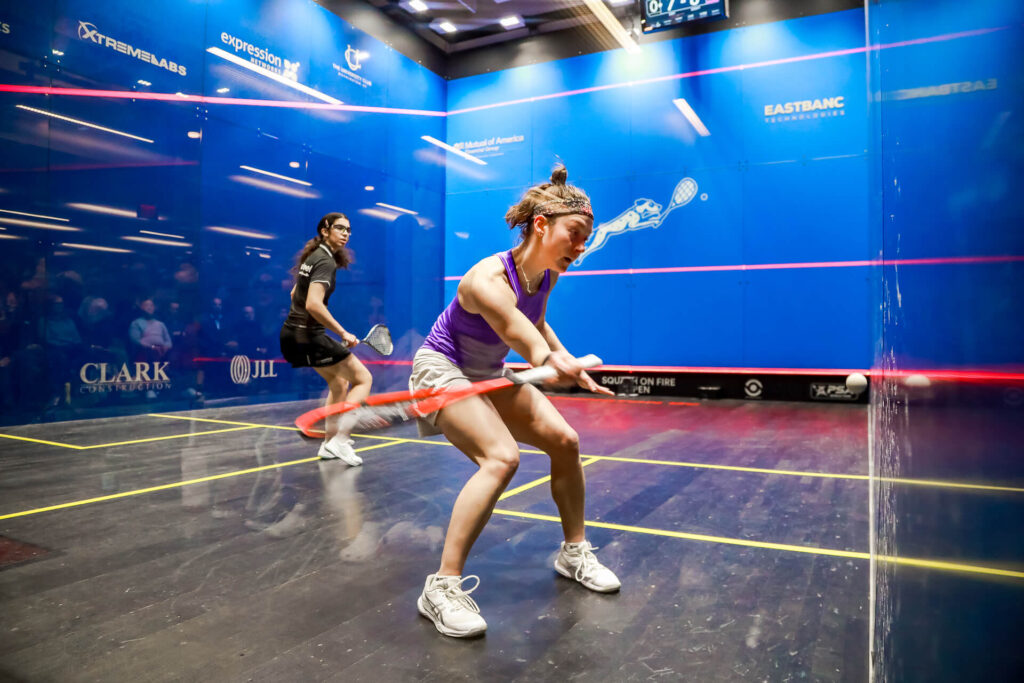
“I don’t think I could even say it was a love-hate relationship growing up, because I was forced and pushed to do it. And then when I turned pro, it was more due to indecision, rather than a strong desire or passion,” she said.
“I was holding onto that resentment for a while. I was really uncertain if something that had caused me so much hatred and pain in the past could be something I truly wanted to do. That being said, I could also never put down the sport. I knew deep down there was a strong enjoyment for the game.”
Having dedicated herself to squash full-time since August (she was previously working two jobs), Sobhy enjoyed her best-ever run at a Platinum event in September when she beat world number 3 Hania El Hammamy to reach the quarter-finals of the US Open.
Sobhy described her shift in mindset this season as “pretty remarkable” as she reflected on a journal entry she wrote 13 months ago in which she speculated that 2022 may be her last year on the tour (see below).
Reread this journal entry I wrote on January 31st, 2022. Pretty much a year ago. Makes me laugh how much can change in a year.
Last year playing squash, right? Couldn’t have been more wrong 🤍still going ! pic.twitter.com/oUxdm8IFj4— Sabrina Sobhy (@ssssobhy) February 22, 2023
“The journal entry made me laugh. I was in a different position then,” she said.
“I was longing for a career that had consistent success and a path you could continuously work towards. In squash, you can work your butt off and lose every single match. Success doesn’t come as easily as a more traditional job, because there’s no certainty that you’re going to be climbing the ladder.
“But despite [my results] in the past couple of events, I’m still feeling motivated. Usually after a couple of bad performances I would feel the hatred again and blame the sport. I’d want to give it up for a bit or still go to events, but just be fuelled by it being what I’d trained to do.
“I realised this is something I’m extremely passionate about.”
‘The pleasure was incomparable’
The Long Island-born Harvard graduate currently trains with her sister, Amanda Sobhy, at Philadelphia’s Arlen Specter US Squash Center. The recently built, 18-court venue is known as the home of US squash and hosted the recent US Open.
“I’ve never felt so much emotion after a match,” she said of her US Open win over El Hammamy.
“Just the fact it happened at the Specter Center, on my home turf, was incredible. The support I got from it and the pleasure I got from competing in that high intensity was incomparable to anything else I’ve achieved in my life.”
Since returning to full-time squash last August, Sobhy typically aims to complete two or three training sessions, five days a week. At least one of these sessions will focus on squash or ghosting, with another centred on physical conditioning.
Sobhy chalked up her newfound zeal for squash to the team she has around her in Pennsylvania, including her coach, fitness trainer and sports psychologists, as well as her sister (pictured below).
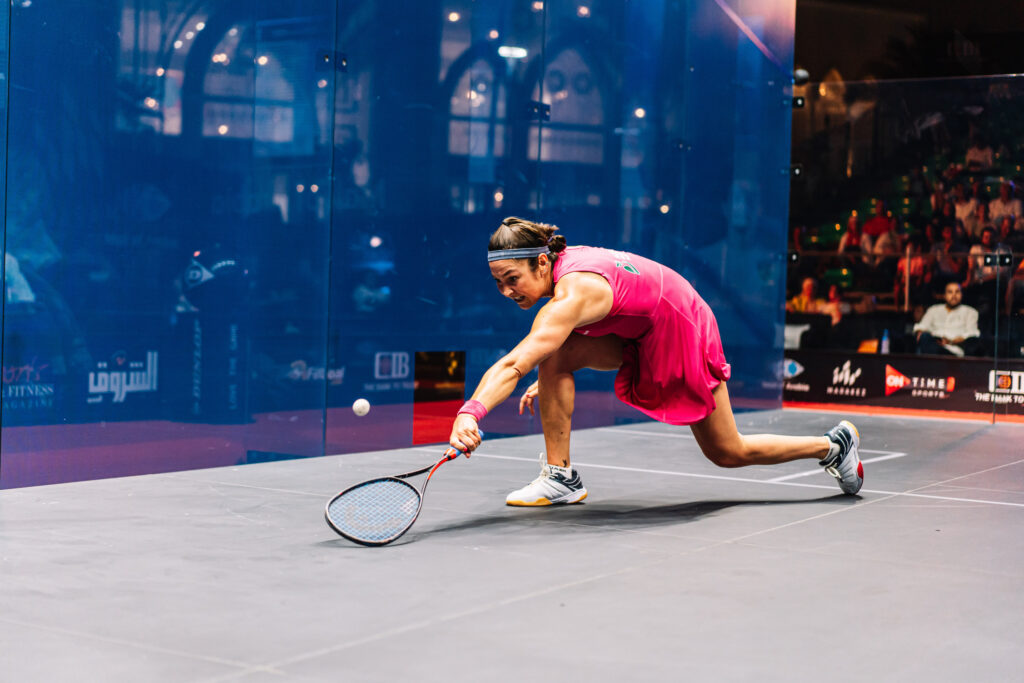
“A lot of it was just the external support from the people that really trust me and that I trust. I’m incredibly grateful for that,” she said.
“There’s a little bit more purpose, and that has allowed me to build that passion and accept that I’m allowed to love a sport that has caused me a lot of struggles and issues in the past.”
‘I actually like Roadrunner nickname’
Sobhy’s blistering pace and court coverage earned her the nickname ‘The Roadrunner’.
But as anyone who has witnessed her deadly backhand hold drop and ability to control play will know, that speed is increasingly allied to a wide array of attacking weaponry and tactical nous.
“In the beginning, I predominantly resorted to the physical aspect and the speed. I didn’t have too many tactics going on,” she said.
“And I think that’s because of my upbringing. My Dad was my coach growing up, and you never hear anything good coming from a parent-daughter coach situation. A lot of times I would tune him out and not listen to the techniques and tactics he was giving me as a kid.
“That stuck with me until maybe two years ago, when I was like ‘okay, all I’m really doing is running and hitting’.
“More recently, it’s been a little bit more structured and functional and working towards all the angles of speed, deception, taking the ball early – or slow – and just more of a traditional and professional game of squash.”
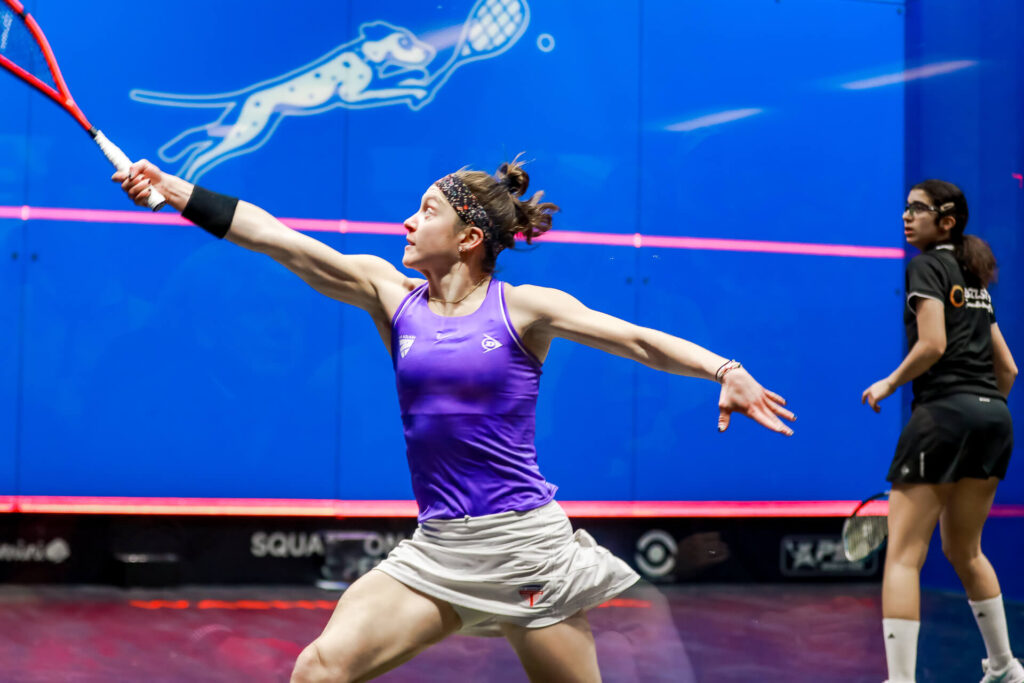
So what does Sobhy really think of her ‘Roadrunner’ sobriquet?
“When I started to make my way on the PSA tour, I didn’t really ever have a gameplan. I was just relying on running and my speed to get by – and that’s kind of what the cartoon does,” she said.
“I think my hair at the time, with the bun, was also a bit like animal feathers. There are a lot of weird nicknames out there. And I don’t hate this one. I actually kind of like it – it feels fitting”.
‘El Hammamy and Gohar’s tenacity is unfathomable’
The top three-ranked women, Nouran Gohar (‘The Terminator’), Nour El Sherbini (‘The Warrior Princess’) and El Hammamy (‘The Leopard’) all have intimidating epithets.
It is the mental steal of this Egyptian trio – as well as sister Amanda – that most inspires Sobhy when it comes to how she would like to strengthen her game.
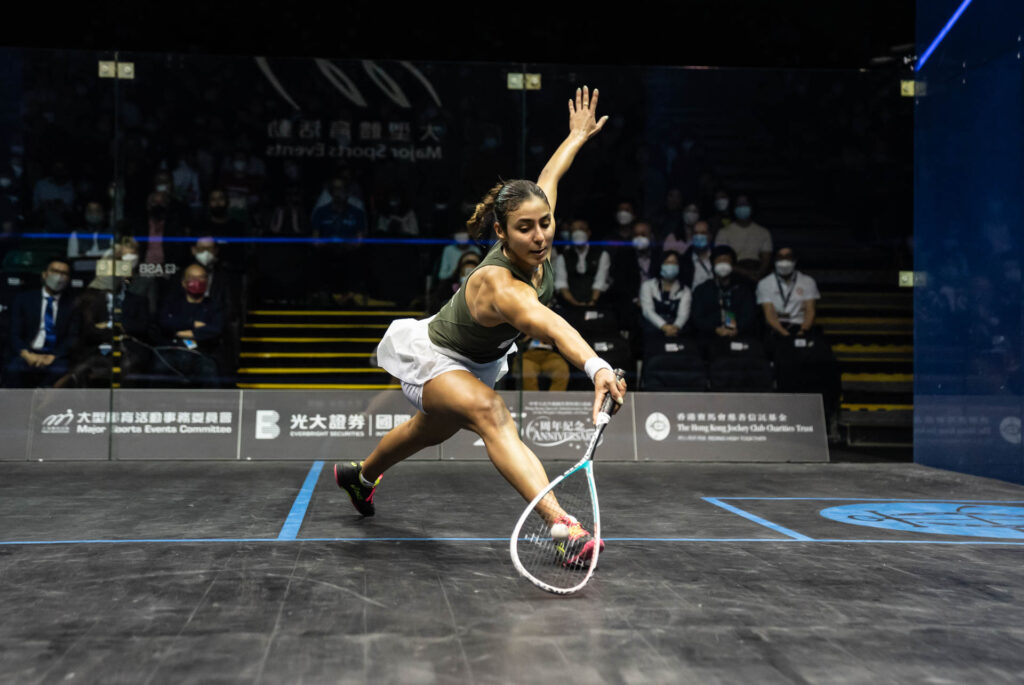
“I’d give Hania (pictured above) the most praise – and Gohar as well – for their tenacity in every single match. It’s unfathomable. I cannot wrap my head around their focus and mental strength to play at such an intense pace and performance every single time, tournament after tournament,” Sobhy said.
“Everyone at the top is a great squash player. But it’s that mental side that’s so important.
“I definitely have a world of work to do there, as the top couple of pros’ mindset, focus and determination is just next level. And Amanda is a great example of it too. It’s game time when they step on court, no matter the external factors or how they’re feeling, and it’s so evident that they have that.”
US pros ‘now competing for number 1’
US squash is on something of a high, with four US women currently sitting inside the top 16 for the first time. The quartet of Sabrina and Amanda Sobhy, Olivia Fiechter and Olivia Clyne finished runners up behind Egypt in December’s World Team Championship.
Money is pouring into the US game at both a grassroots and elite level. US Squash CEO Kevin Klipstein is intent on growing the number of regular and casual squash participants in the US by ten-fold, to 1.5 and 14 million, respectively, and believes that the US elite women’s team has a “realistic eye” on overhauling Egypt in the “near future”.

Despite concerns about declining participation in squash elsewhere, Sobhy feels that the health of the game in the US is on an upward trajectory.
“We’re now competing for a top 10 or even top 1 spot, at least on the women’s side, which is incredible,” she said.
“That should be incredibly inspiring for the younger generations. There are so many high schools that have teams now.
“It’s now really accessible. It’s a lot more of a possibility as a sport to opt for now. When I was growing up, there weren’t that many high-school teams and areas to play.
“I feel like the number of tournaments and players has quadrupled. And when [juniors] see the professionals succeeding, but also giving back – it’s not just tournaments, you can also do camps and exhibitions and all these other amenities that come from being a pro – it’s now more of an exciting career.”
Does Sobhy agree with Klipstein that the US could soon challenge Egypt’s stranglehold of the women’s game?
“I think it’s possible. In the end, it’s all about the work you put in and the determination and discipline you have,” she concluded.

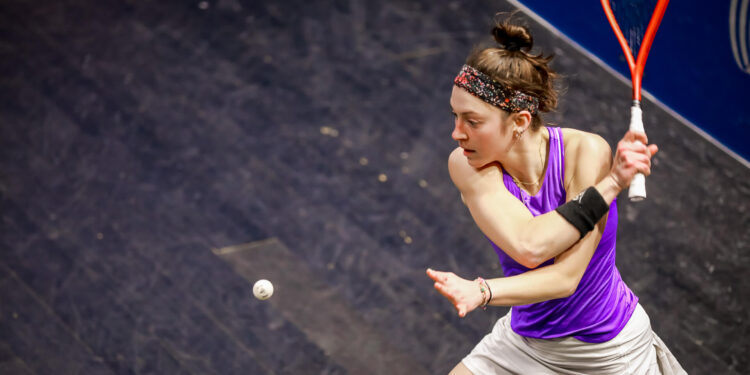
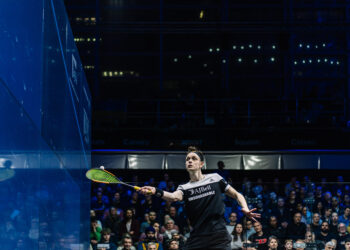






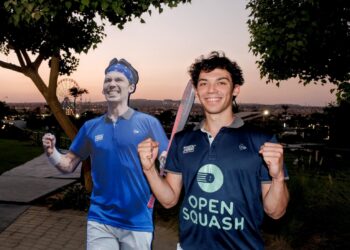
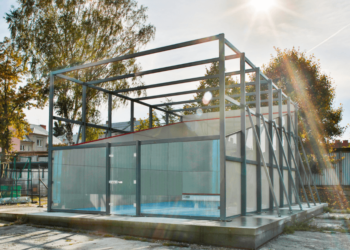

Loved the Sabrina piece, thanks. She’s a fascinating person – I’m surprised the article didn’t touch on her art, which is actually quite good. Sabrina is a kind of rennaisance woman, thoughtful and with a generous spirit, who happens to play a ferocious game of squash.I think she may have more upside than her sister, who I also admire for different reasons, but Amanda has figured out the pro game and all it entails and Beans is a work in progress. I can’t wait to see where they both go with squash, and after it.